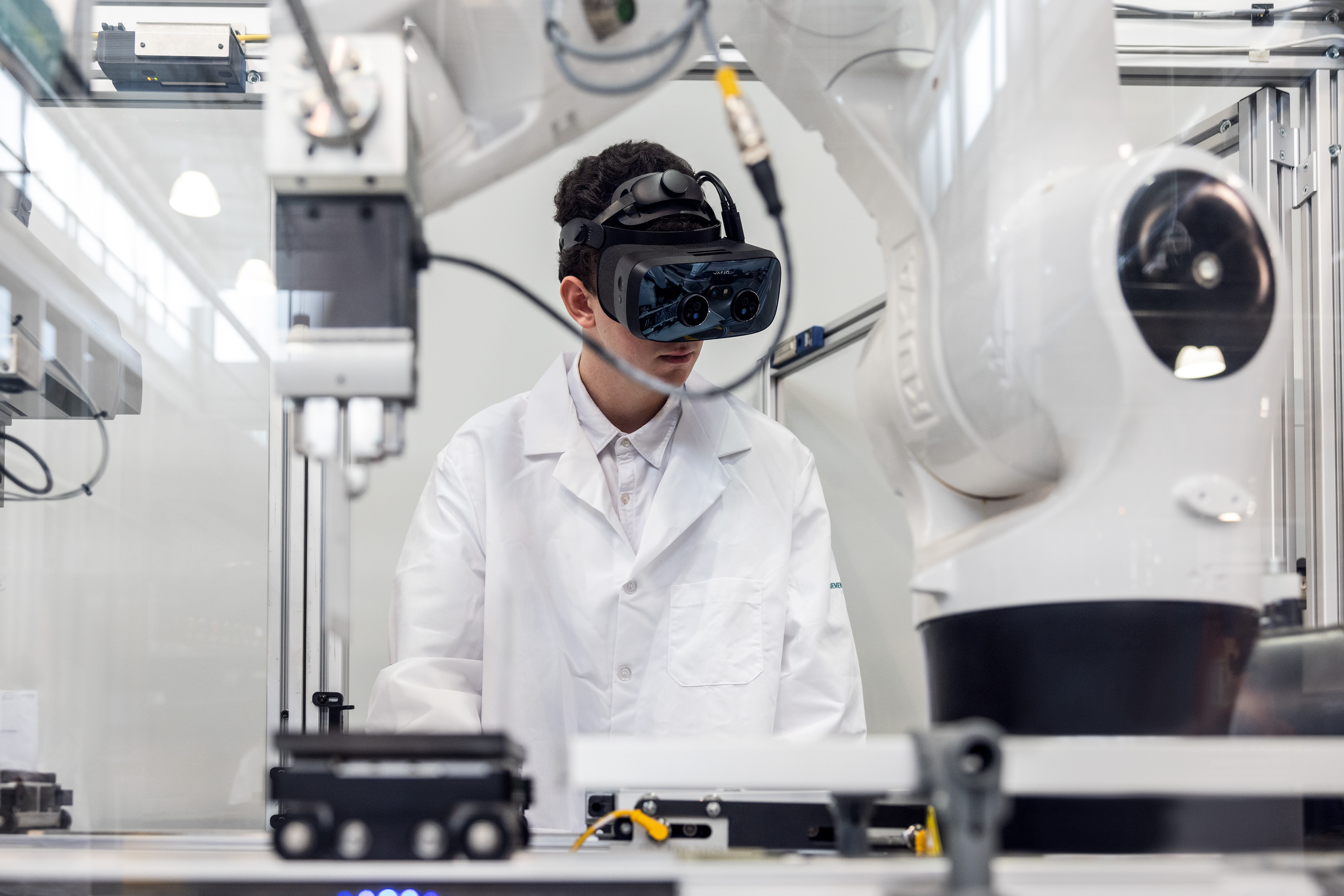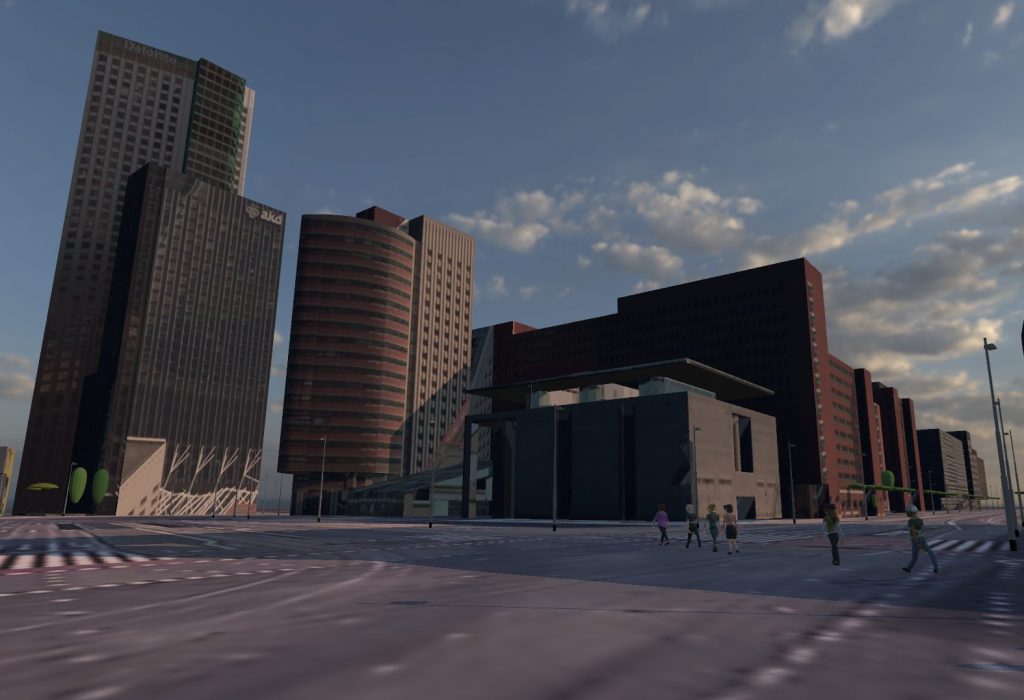

Stepping Into a New Reality in Education: Rotterdam University of Applied Sciences Introduces a Specialized Course in VR, AR, and MR
Rotterdam University of Applied Sciences’ first-of-its-kind course on immersive technology represents a significant leap in modern technological education.
Rotterdam University of Applied Sciences (RUAS) is pioneering the adoption of immersive technologies in academia with its new course "Real(ity) Innovations: VR / AR / MR". The course is one of the first in the world dedicated solely to providing hands-on experience and people-focused innovation in virtual reality (VR), augmented reality (AR), and mixed reality (MR)
In response to the growing need for immersive content creation and talent, RUAS is placing immersive technologies at the forefront of education with their new course. Collaborating with industry experts, students will engage in a learning journey that includes research, experimentation, theory classes, guest lectures, workshops, and projects, all centered on the practical application and exploration of AR, VR, and MR technologies. The aim is to give students a comprehensive understanding of various different immersive technologies while emphasizing human-centric thinking.
“Our approach is unique, as our emphasis is on developing innovative, human-centric solutions to complex challenges,” says Ornella Schavemaker-Piva, Course Lead and Lecturer at RUAS. “With Rotterdam aspiring to be a frontrunner in digital advancements, our university is committed to equipping students for not just a smart city, but a socially conscious one.”
Designed for fourth-year undergraduate students from various tech or art majors, the immersive technologies course spans one semester. Within two weeks of the course’s commencement, students will have the opportunity to choose an area of specialization ranging from content development and UX design to a more hardware-based tech development route.
The course includes a specialized approach where, in addition to theory-based lessons, there is a strong focus on practical applications. Projects with local companies and collaboration with industry experts are a key aspect of the course, offering students valuable industry insight and hands-on experience. Instead of traditional exams, students’ grades will be determined by the successful completion, documentation, and presentation of their projects and feedback from the companies involved.
“We strongly believe in bringing in voices from outside the university, especially from companies actively working with these technologies. This approach provides students with a unique perspective, beyond what they might learn from a traditional academic setting,” Schavemaker-Piva explains.
Industry-Aligned Practical Projects with Leading Organizations
In past similar courses, RUAS has been involved in some remarkable collaborations with local organizations including the municipality of Rotterdam, research companies, and the Dutch Army. For the upcoming semester, the AR/MR/VR course is partnering with the Modeling, Simulation & Gaming department at TNO (Dutch Organization for Applied Scientific Research) to collaborate on project initiatives and provide lesson materials.
One of the notable past projects was the development of a VR trainer for police detectives, designed to train the detectives on how to use different types of UV lights for crime scene investigations.
“The students contributed to this project by developing a multiplayer concept, enabling several people to collaborate within the virtual crime scene. The project work consisted of several facets, including the creation of the virtual world, background design, communication setup, and realization of the multiplayer feature,” shares Elise de Ron-van Beurden, Lecturer and Lab Manager at RUAS
The students’ feedback on the collaborations has been overwhelmingly positive. “They loved working on projects for actual companies. That’s one aspect we plan to retain in our new course design, and we believe it will be well-received by future students,” de Ron van Beurden notes.
Cutting-Edge Labs and Tools Enabling Immersive Exploration
Students at RUAS are provided with access to state-of-the-art technology labs enabling them to explore, experiment, and innovate in multiple domains. Students often visit these labs to learn mandatory course content and participate in aligned workshops, while also having the opportunity to experiment on their own initiative.
The university’s VR Lab is a dedicated space equipped with base stations, housing an array of VR, MR, and AR headsets. In past courses, Varjo headsets have been used primarily for demonstration purposes to showcase the high-quality resolution and experience they offer.
“We tend to demonstrate Varjo’s foveated rendering, a feature that our students often find surprising. One of the demonstrations we’ve used frequently is the 3D rendering of the artist Tommi Toija’s studio, which never fails to amaze people,” de Ron van Beurden explains. “We’ve also experimented with different mixed reality masking and marker technologies, seeing if it’s possible to incorporate one’s keyboard or laptop into the immersive experience, which has yielded interesting results.”
With the new course starting this fall, the university is planning to incorporate Varjo headsets more prominently, to help communicate the realism and high immersion of advanced VR and MR technologies. Unity will be the primary software platform used on the course.

As for the biggest challenges with incorporating immersive technologies into the university curriculum, the RUAS team notes the fast-paced nature of the technology:
“We’re always playing catch-up, given how quickly the technology evolves. The constant need to update technological inventory often outstrips educational institutions’ ability to keep up,” says Ornella Schavemaker-Piva.
“However, we continually explore the skills our students need to acquire and see how we can ensure their learning remains relevant and sustainable in such a fast-paced field.”
Shaping the Future of Learning and Education
The university's vision for immersive technologies goes beyond this course. RUAS’s Immersive Technologies Program is currently developing a plan for the advancement of these technologies over the coming years, with a particular focus on research.

The team sees potential in integrating different types of simulators and VR worlds, moving beyond just standalone instances. “By connecting these different VR worlds located at various sites, we can enhance the value of training and education through the interaction of different virtual environments and the trainers,” says Elise de Ron van Beurden.
The Immersive Technologies Program also plans to conduct research comparing the effectiveness of traditional learning techniques with immersive techniques. Previous early research on immersive technologies as learning tools has, for instance, shown signs of VR/XR applications improving student engagement and learning satisfaction. The RUAS team’s aim is to explore the impacts of combined training involving different types of simulators and VR worlds. “The defense sector has been using this approach for years. Now, we think it’s time to translate this methodology from defense to other forms of training and education,” de Ron van Beurden states.




